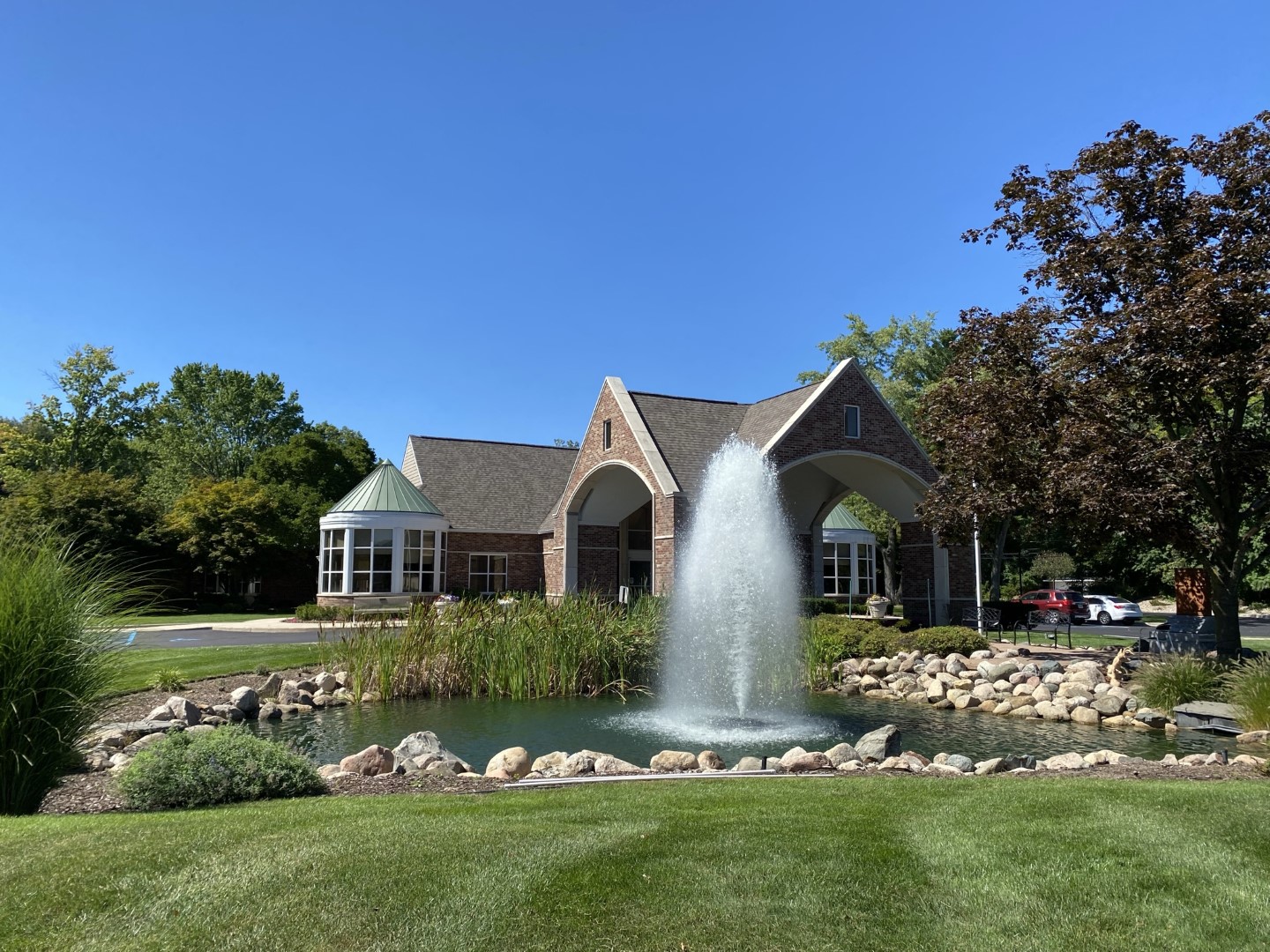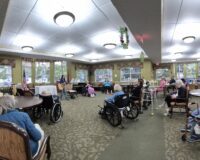As seniors age, they often face chronic health conditions that require ongoing management to maintain a high quality of life. For those in assisted living, like at Manoogian Manor, having support to manage these conditions can make a significant difference in daily comfort and long-term well-being. Chronic conditions such as arthritis, diabetes, and heart disease are common among older adults, but with the right strategies, their impact can be minimized. By understanding these conditions and implementing proactive measures, both seniors and their families can work together with caregivers to improve health outcomes. Here are seven effective ways to help seniors manage common chronic conditions.
-
-
-
Joint Care for Arthritis Relief
-
-
Arthritis is one of the most common chronic conditions affecting seniors, and it can severely impact mobility and quality of life. To manage arthritis, it’s essential to focus on joint care, which includes a combination of physical therapy, gentle exercise, and pain management strategies. Families can encourage their loved ones to participate in gentle stretching routines and low-impact activities, such as swimming or chair yoga, which help maintain flexibility and reduce stiffness. Additionally, providing items like ergonomic tools, hand grips, or heated blankets during visits can further alleviate discomfort. Many assisted living communities offer group exercise classes that accommodate arthritis, making it easier for seniors to stay active and mobile.
-
-
-
Diabetes Monitoring and Management
-
-
Diabetes requires vigilant blood sugar management, particularly for seniors who may have less resilience to fluctuations. Assisted living facilities usually assist with daily glucose monitoring and medication administration, but family members can play a supportive role by encouraging healthy eating habits. Visiting with low-sugar snacks or discussing dietary options with staff ensures that seniors have access to balanced meals. Also, families can encourage their loved ones to stay active, as regular physical activity can help stabilize blood sugar levels. For seniors with diabetes, an emphasis on healthy snacks, portion control, and regular activity creates a proactive approach to managing this chronic condition.
-
-
-
Supporting Heart Health Through Nutrition and Lifestyle
-
-
Heart disease is a leading health concern for older adults, often requiring lifestyle adjustments to prevent complications. A heart-healthy diet that includes plenty of fruits, vegetables, whole grains, and lean proteins can have a positive impact. Families can encourage heart health by visiting with snacks rich in omega-3 fatty acids, such as nuts or flaxseeds, which promote cardiovascular wellness. Assisted living facilities often provide exercise programs to encourage gentle cardio, such as walking, which is beneficial for heart health. Family members can join in on these walks during visits, making physical activity a bonding experience while supporting heart health.
-
-
-
Cognitive Engagement for Dementia and Alzheimer’s Care
-
-
Memory-related conditions like dementia and Alzheimer’s require a specialized approach to care. To help loved ones manage cognitive decline, families can introduce engaging activities that stimulate memory, such as puzzles, photo albums, or memory games. Engaging in these activities during visits fosters mental stimulation and provides a comforting routine. Families can also work with assisted living staff to create a structured daily schedule, which can be reassuring for those experiencing memory loss. Consistency, cognitive challenges, and meaningful interactions can support cognitive function, promoting a sense of familiarity and comfort for seniors managing these conditions.
-
-
-
Effective Pain Management for Chronic Conditions
-
-
Many chronic conditions, including back pain and osteoporosis, can lead to persistent discomfort. Pain management in assisted living typically involves a mix of prescribed medications, physical therapy, and complementary therapies, such as massage or acupuncture, when available. Family members can contribute by discussing pain levels with their loved ones, helping them communicate their needs to caregivers. Additionally, bringing items like supportive cushions, comfortable shoes, or hot/cold packs can help ease daily discomfort. Staying informed about new pain management techniques or devices can provide families with options to enhance comfort for their loved ones.
-
-
-
Respiratory Health for COPD and Asthma
-
-
Chronic respiratory conditions like COPD (chronic obstructive pulmonary disease) and asthma can be challenging for seniors, particularly in environments with shared air circulation. Families can support respiratory health by discussing indoor air quality with the facility staff, ensuring that living spaces are well-ventilated and free from dust or mold. Some facilities may allow personal air purifiers, which can improve breathing comfort. Loved ones can also encourage breathing exercises that help strengthen lung capacity, reducing symptoms. For visits, bringing in a portable humidifier or introducing breathing exercises together can help seniors manage respiratory issues and improve their daily comfort.
-
-
-
Maintaining Mobility and Balance for Fall Prevention
-
-
Limited mobility and balance issues are prevalent among seniors with chronic conditions, increasing the risk of falls. For families, assisting loved ones in maintaining mobility can help prevent accidents. Encouraging regular, gentle exercises, such as Tai Chi or guided stretching, can improve balance and coordination. Family members can work with assisted living staff to ensure that living areas are clutter-free and that supportive aids, like grab bars or walkers, are available as needed. During visits, joining seniors in these exercises or rearranging their space to accommodate any mobility challenges can be impactful. Preventing falls is key to protecting seniors’ overall health and well-being.
Enhancing Life with Support and Understanding
Managing chronic conditions requires a thoughtful, collaborative approach to care. With the support of family, caregivers, and healthcare professionals, seniors can lead fulfilling lives despite the challenges of chronic health issues. Families who actively participate in their loved ones’ care help create a sense of security and motivation, showing that every effort—from nutritious meals to gentle exercise—helps improve quality of life. Empowering seniors with tools to manage their conditions fosters resilience, enabling them to enjoy life’s moments with comfort and peace.





